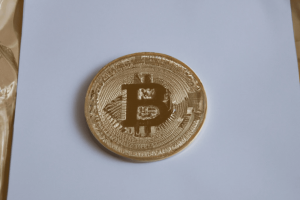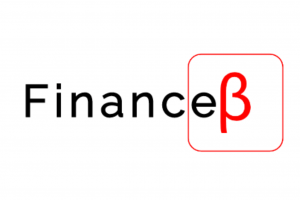Article Summary
Finding the best crypto exchange can be an intimidating search.
There are many cryptocurrency exchanges out there, each with varying features, costs and currencies.
In this article, we share how to find the best cryptocurrency exchange. We talk about some of the most popular cryptocurrency exchanges and tell you what we think are the best crypto exchanges of 2024 and why.
Intro
To buy or sell cryptocurrencies, you’ll need to use a crypto trading platform.
A cryptocurrency exchange is a marketplace where you can buy and sell crypto assets, like Bitcoin, Ether or Dogecoin and regular currencies, like the U.S. Dollar and the Euro.
To buy cryptocurrency, you need to create an account with a crypto exchange. You may need to obtain a crypto wallet to hold your digital assets. Most exchanges will provide you with one.
Crypto exchanges offer varied services and currencies and each has its own fees.
So what makes the most popular crypto exchanges stand out from the rest?
Caveat
Cryptocurrencies are extremely volatile and highly speculative. Cryptocurrency trading is risky and should be done with caution.
What to consider when searching for the best crypto trading platform
Here are some of the considerations that you should look out for when checking various crypto exchanges.
Security
We live in an environment of high cybersecurity risk, thus a strong cybersecurity posture is critical, especially for those in the financial sector. Many crypto exchanges have suffered hacks including Binance’s international operation and KuCoin.
You want to select a reputable cryptocurrency exchange with a high Cybersecurity rating. CERtification Platform maintains a list of the top 100 exchanges by cybersecurity rating and is a useful resource to assess the cybersecurity strength of most crypto exchanges.
But even with reputable crypto trading platforms, there are no guarantees that they will not get hacked. You can minimize this risk by spreading your crypto assets across multiple crypto exchanges.
Supported Cryptocurrencies
You want to confirm that your choice of cryptocurrency exchange supports the crypto assets you wish to trade. Most cryptocurrency exchanges allow you to trade Bitcoin, Litecoin, Ethereum, and other top digital currencies.
Cryptocurrency exchanges that trade in a wide range of cryptocurrencies is a positive sign. You also want to see a large volume of trades happening too. This ensures that you can trade your cryptocurrency assets seamlessly when you need to due to adequate liquidity.
It is also important to consider geography and regulations. Not all cryptocurrency exchanges are available in the U.S., and some only operate in certain states.
Pricing
There is a recurring fee for using the crypto trading platform. The cost varies from vendor to vendor according to the features on offer.
Here you want to pay attention to the fine print, e.g. Some offer high transaction fees for low-volume traders. A limited range of coins but very low trading costs, making it a strong fit for those who want to trade a lot (or a little) of a small variety of digital currencies.
If you are a beginner, it’s better to start with an affordable easy to use crypto trading platform as you build up your knowledge and map out your investment strategy.
Ease of Use
Both beginners and advanced traders can benefit from better usability.
This is especially important for newer traders who struggle to use platforms with a less intuitive user interface.
Reputation and User Reviews
One should look out for crypto exchanges that have been trading for a long time. There is a sense of stability that they have gone through their fair share of challenges and know the pitfalls.
You are more likely to get a more accurate opinion of the top cryptocurrency trading platforms from many positive reviews.
The Best Crypto Exchanges of 2024
Based on the above considerations, here are our picks for the best crypto exchanges of 2024.
- Binance.US – Best cryptocurrency exchange for low fees
- Coinbase – Best cryptocurrency exchange for beginners
- Crypto.com – Best cryptocurrency exchange for Security
- BlockFi – Best cryptocurrency exchange for earning interest
Binance.US – Best Cryptocurrency Exchange for Low Fees
Binance.US is a domestic exchange run by global crypto powerhouse Binance, the world’s largest cryptocurrency exchange by trading volume. It provides much of its parent company’s features, including industry-low fees and a broad range of cryptocurrencies available to trade.
Pros
- Low costs for spot and general trading.
- High-speed trade execution
- A wide range of cryptocurrencies are available for trading.
- High cybersecurity ranking and user reviews.
Cons
- Fewer coin options than its international parent company, Binance.
- Not currently available in all U.S. states, including Texas and New York.
- Newcomers to crypto may want more educational tutorials.
Coinbase – Best Cryptocurrency Exchange for Beginners
Coinbase is one of the largest and safest platforms in the market and trades publicly under the ticker symbol “COIN.”
We ranked Coinbase as the best crypto trading platform for beginners because of its easy-to-use interface, extensive educational material on everything from blockchain to volatility, and robust security features.
Coinbase’s security features are worth mentioning: it uses two-factor authentication on all versions of its platform, stores 98% of customers’ crypto offline, and has an insurance policy to protect crypto holdings of up to $250,000 (per FDIC coverage limits). Such robust measures are why Coinbase is ultimately worth it, despite the higher fees.
The drawback is the highly complex fees structure. You must use a separate, more complex platform to access a lower pricing structure.
Users who enjoy Coinbase but would like more advanced charting and trading features may want to look at the company’s other exchange platform, Coinbase Pro.
Pros
- Beginner-friendly interface and easy purchase process.
- Wide selection of cryptocurrencies with 100+ Currencies available
- Strong user reviews and security ratings.
- A broad collection of educational resources.
Cons
- High fees
- One must use a separate, more complex platform to access a lower pricing structure.
Crypto.com – Best cryptocurrency exchange for Security
Crypto.com is the best crypto exchange for security because of its multiple layers of protection against crypto fraud and cyberattacks.
With 250+ crypto currencies crypto.com ranks high in CERtification Platform’s top 100 exchanges by cybersecurity rating.
Some of the security strategies they employed by Crypto.com include offline cold storage for all crypto, regulated custodian bank accounts for traditional currency, and regular software peer-review. It also uses multi-factor identification with a password, biometric, email, phone, and authenticator verification. In addition, its platform has undergone several penetration tests.
Crypto.com also offers unique perks, like a crypto rewards debit card for those hoping to optimize for coin-based rewards.
Pros
- Outstanding cybersecurity infrastructure and high cybersecurity ratings.
- Low fees if your account is funded with cash transfers
- Large selection of crypto assets
Cons
- Higher trading fees for low-volume crypto investors.
- Expensive credit and debit purchases
- Some services are not available in the U.S.
- No crypto-to-crypto trading options
BlockFi – Best cryptocurrency exchange for earning interest
BlockFi is the best crypto exchange for earning interest because it allows users to earn interest on their crypto and borrow money using Bitcoin as collateral.
While BlockFi supports only six popular cryptocurrencies including Bitcoin and Ethereum, there are no transaction fees on trades, hence you won’t have to worry about hidden fees or minimum balances.
BlockFi is a good fit for beginner and intermediate cryptocurrency investors who want to bridge the gap between traditional finance and crypto.
Pros
- No fees for trading stablecoins or cryptos
- Responsive customer service
- No minimum balance is required to earn interest
- U.S.-based and regulated
- No monthly fees or minimum deposits
- Available worldwide, except sanctioned or watch-listed countries
Cons
- Only eight coins available for trading
- No joint or custodial accounts
- Limited free withdrawals from interest accounts
Frequently Asked Questions (FAQs)
What is a Crypto Exchange?
A crypto exchange is a marketplace where you can buy and sell cryptocurrencies, like Bitcoin, Ether or Dogecoin and regular currencies, like the U.S. Dollar and the Euro.
Cryptocurrency exchanges are an essential part of the crypto ecosystem because most traditional investment firms do not offer cryptocurrencies in their portfolios. Without exchanges, you would have to find another person willing to trade crypto and agree at an exchange rate.
How does a crypto exchange work?
Cryptocurrency exchanges work a lot like brokerage platforms you may be more familiar with. Each offers a portal where you can create different order types to buy, sell and speculate on cryptocurrencies.
There are centralized exchanges that are managed by one corporate authority, like a brokerage company that facilitates the security of trades. There are also decentralized exchanges that generally distribute verification powers to anyone willing to join a network and certify transactions, much like cryptocurrency blockchains themselves. This may help increase accountability and transparency as well as ensure an exchange can keep running if something happens to a company running an exchange.
In exchange for digital currencies, exchanges may accept a wide variety of payments, including credit or debit card(s) payments, direct bank transfers, money orders and even gift cards.
What is a crypto wallet and how is that different from a Crypto exchange?
Crypto wallets and cryptocurrency exchanges are both essential tools used to manage cryptocurrencies. Wallets are meant to keep your crypto funds safe, whereas exchanges are trading hubs where users convert fiat currencies to digital ones and buy or sell crypto based on current market rates.
How do you buy Crypto?
To buy cryptocurrency, you’ll need to create an account with a crypto exchange.
Most centralized exchanges allow you to deposit funds via your bank account, credit or debit card. You can then exchange those funds for the cryptocurrency of your choosing. While some offer a simple “Buy Now” type transaction that only offers a market order, some exchanges will allow you to set more advanced order types, including limit and stop orders.
Once you purchase that cryptocurrency, the exchange typically takes custody of it, and most store cryptocurrency in offline “cold storage” for safekeeping. If you want to take custody of the cryptocurrency yourself, most exchanges allow you to transfer it to your “hot” or “cold” wallet, along with the private keys for that cryptocurrency.
What are the crypto exchange fees that I should be aware of?
Crypto exchanges charge several fees, and it’s not always clear what exactly you’ll be charged for.
There are two main types of fees to look out for: exchange fees and network fees.
Exchange fees are how crypto exchanges make money. In other words, they’re service fees that include:
- Trading fees that are charged when making transactions and are also called “maker/taker” fees. Trading fees indicate whether a crypto order provides liquidity to the market or not. These also apply when converting currencies.
- Deposit fees are charged when users add money to their account, usually via debit card, credit card, or PayPal instead of through a direct bank transfer.
- Withdrawal fees are charged when withdrawing regular currency or cryptocurrencies from your account.
- Account fees are charged regularly, usually every month.
Network fees that are paid to cryptocurrency miners, who process and secure crypto transactions on the blockchain. Most centralized crypto exchanges incur this cost, though some may allow their users to pay more in miner fees to speed up transaction speeds. Users on decentralized exchanges generally have to pay this themselves, since there is no third party between them and the crypto miners.
How much money do you need to buy Crypto?
Exchanges have different requirements, often depending on the type of digital assets you want to buy. You may be able to buy fractional shares of coins for pennies or just a few dollars. Be sure to check your chosen crypto exchange’s requirements for the coin you want to buy.
How do I open a Crypto account?
To open a crypto exchange account, visit the exchange’s website or download its app. Each cryptocurrency exchange has its unique registration process, and with some, you may be able to make an account and buy and sell small amounts of crypto assets without verifying your identity or submitting much sensitive information. But as the industry has evolved, the U.S. government has introduced certain Know Your Customer regulations to prevent money laundering and fraud. In general, you’ll need to provide:
- Name
- Date of birth
- Mailing address
- Social Security number
You may also have to verify your identity by submitting a photo or scan of a government-issued ID.
Key Takeaways
To find the best crypto exchange among the things you must consider are security, supported currencies, pricing, ease of use, and user reviews.
There is no clear winner for the best crypto exchanges of 2024. The exchanges listed above all have their pros and cons.
Our analysis of the major crypto exchanges shows Binance.US, Coinbase, Crypto.com, and BlockFi tick all the right boxes and are the frontrunners for the best crypto exchanges for 2024.



